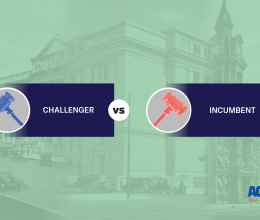COLUMBUS - The American Civil Liberties Union of Ohio will offer testimony before the Ohio Senate Finance Committee on the state’s proposal to privatize and sell up to six public prisons. Following Governor Kasich’s introduction of the state’s biennial budget, the ACLU has been one of many organizations to raise concerns over prison privatization. In April 2011, the ACLU of Ohio released “Prisons for Profit: A look at private prisons.” The report is a compilation of scholarly studies, government reports, and stories from communities that have experienced the negative impact of prisons for profit. In addition, the ACLU has embarked on a six-stop tour of the state to engage residents on the problems with private prisons.
“Private prisons are inherently different from public prisons because their goal is to maximize their revenues,” said ACLU of Ohio Director of Communications & Public Policy Mike Brickner. “It is in their best interest to ensure our facilities remain as full as possible. With our prison system already at 133% capacity, Ohio cannot afford to experiment with plan that may increase the prison population.”
Prison privatization is not the only major prisons proposal before the Ohio General Assembly. The ACLU has been a vocal supporter of House Bill 86, which would shift many low-level non-violent offenders into less costly and more effective community corrections and rehabilitation programs. The bill passed the Ohio House, and is now before the Senate Criminal Justice Committee.
“The legislature is on the verge of passing important sentencing reform in House Bill 86. Privatization may undermine the strides made to relieve our overburdened prisons,” added Brickner. “Private prisons will be charged with housing low-level, non-violent offenders — the very people sentencing reform is meant to impact. This will impede any serious effort to reduce the prison population.”
According to the ACLU’s April 2011 report, several studies have shown that prison privatization yields little or no cost savings to the state. In addition, the ACLU outlined several stories from states ranging from Pennsylvania, Arizona, and Texas that encountered serious cost and public safety problems after privatizing their prison systems. The ACLU also outlined Ohio’s troubled history with private prisons. In the 1990s, a private federal prison was opened in Youngstown, but was closed a few years later after a string of lawsuits, security breaches, and increased costs.
“Private prisons save very little money, and employ less experienced personnel who are unable to adequately address the problems that occur in facilities,” concluded Brickner. “Legislators need to focus on ways to reduce our prison population, which will produce more cost savings and make our communities safer.”









